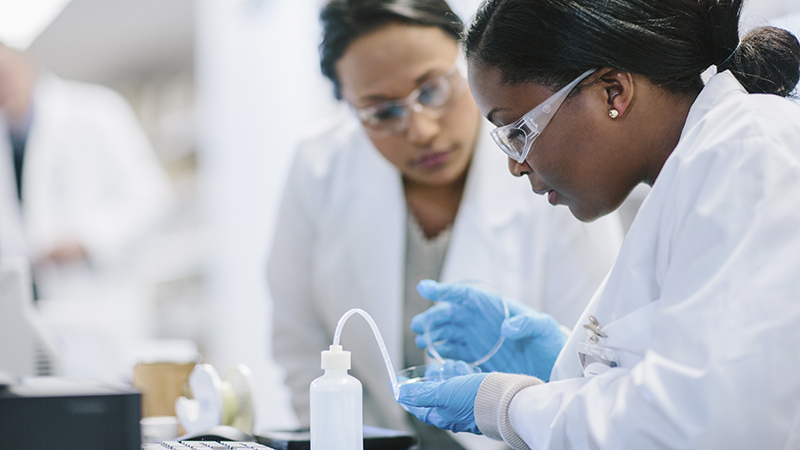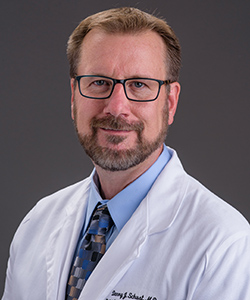
The federally funded Reproductive Scientist Development Program has moved from Washington University in St. Louis to the University of Missouri School of Medicine. Danny Schust, MD, the David G. Hall Professor of Clinical Obstetrics and Gynecology, will serve as director of the program’s 10 OB/GYN scholars as they learn research skills.

The program started in 1988 in response to a National Institutes of Health initiative to increase research in reproductive medicine. The most recent five-year, $4.5 million grant for the program started in 2018 at Washington University but shifted permanently to the MU School of Medicine in January. An additional $3.5 million comes to the program from non-federal sources.
“Despite the fact that women are half of the population, they’ve never gotten their due when it comes to research,” Schust said. “Most studies have involved men. Women have never been studied very well, and the NIH recognized that was taking a toll. This program can have a really huge impact.”
Each scholar selected must be a residency-trained OB/GYN. Many also have fellowship training in reproductive endocrinology, maternal fetal medicine or gynecologic oncology. Once in the program, scholars are given a lab assignment with a world-renowned researcher across the country who becomes their on-site mentor. Schust provides oversight and additional guidance. The four-year program includes two years of full-effort lab work, followed by two years in which 75% of the time is spent in the lab and 25% in the clinic.
“The types of research our scholars are doing is really on the leading edge for understanding a lot of different diseases, and these diseases cover the breadth of OB/GYN,” Schust said. “So we have people in maternal fetal medicine trying to understand what can go wrong in a pregnancy. Pregnancy has an effect not just on the mom and her baby, but on her baby’s babies and their babies’ babies. So you could consider pregnancy as an opportunity to have an impact on the health of every person who’s born and generations to come. You could argue that it’s the most important time to take care of a woman.”
The program has graduated more than 100 researchers. Schust said a majority of them have remained in academic medicine roles. He trained in the program in the 1990s and said he expects the program to remain at MU when the grant goes in for renewal.





